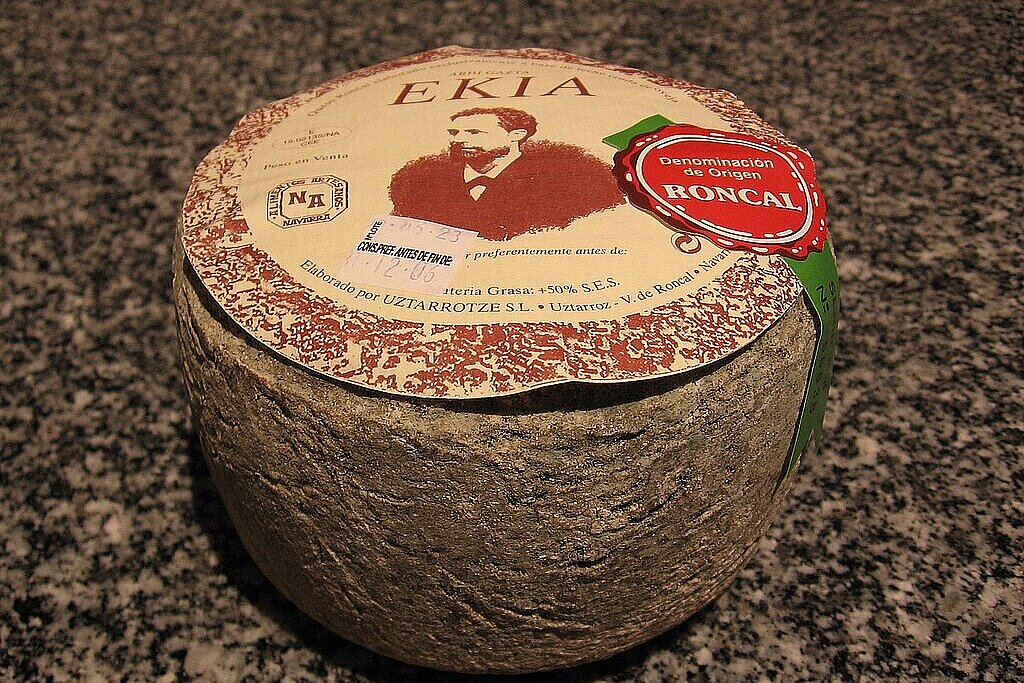Idiazábal

In the culinary world, Idiazábal cheese is known for its deep-rooted tradition, characteristic taste and outstanding quality. Obtained from the milk of the Latxa sheep, which graze in the Basque and Navarre mountains, this cheese offers a unique taste experience. But while gourmets and cheese lovers appreciate Idiazábal for its smoky notes and firm texture, many dog owners wonder whether this culinary treasure is also suitable for their four-legged friends. In this article, we shed light on what exactly Idiazábal is and discuss the potential benefits and drawbacks of including it in a dog's diet.
What is Idiazábal?
Idiazábal is an unpressed hard cheese that is traditionally made from the raw milk of the Latxa sheep. It is matured for several months, during which time the cheese develops its unmistakable flavour, often characterized by a slight smoky note. This smoky note comes from the traditional method of smoking the cheese in the farmhouses. The cheese is not only a valued part of Basque cuisine, but has also gained national recognition and won several awards.
Nutritional profile and use
Idiazábal is rich in proteins, fats and essential nutrients such as calcium. While it is considered a delicacy in the human diet, its use in dog nutrition is less common and should be considered with caution.
Benefits of Idiazábal for dogs
High nutritional value
As a cheese rich in protein and fat, Idiazábal can be a source of essential nutrients in a dog's diet in small quantities. Proteins are important for building and repairing tissue, while fats provide energy.
Flavor variety
Idiazábal can serve as a special treat and provide flavor variety in a dog's diet. Acceptance can be high, especially with picky eaters.
Disadvantages and precautions
Lactose intolerance
Many dogs are lactose intolerant, which means that they cannot digest lactose effectively. Eating cheese can lead to digestive problems such as bloating, diarrhea or vomiting in these dogs.
High fat content
The high fat content in Idiazábal can lead to weight gain and associated health problems if consumed in excess. There is also a risk of pancreatitis, a serious disease of the pancreas.
Potentially harmful substances
Cheese, especially when fed in large quantities, can contain contaminants that can be harmful to dogs. The smoky flavor of Idiazábal, which comes from smoking, could also contain potentially problematic compounds.
Enjoy with caution
While Idiazábal cheese is undoubtedly a culinary delight for humans, dog owners should exercise caution when considering introducing it into their dog's diet. The potential benefits, such as high nutritional value and variety of flavors, must be weighed against the risks, particularly lactose intolerance and high fat content. As with any treat or supplement to the regular diet, it is advisable to start with small amounts and monitor the dog's reaction carefully.
If you notice any signs of hypersensitivity or poisoning in your dog, you should see your vet immediately. We are not a substitute for a vet, but we try to be as accurate as possible. Every dog reacts differently and we recommend you get a second opinion or consult your vet if in doubt.
Stay healthy and take good care of your four-legged friend!😊
Similar to Idiazábal
Queso Manchego is a Spanish cheese made exclusively from the milk of Manchega sheep in the La Mancha region. This cheese is characterized by its firm texture and rich aroma, which ranges from nutty...
Pecorino is an Italian hard cheese traditionally made from raw or pasteurized sheep's milk. It is known for its rich, salty flavor and crumbly texture, which becomes more intense as the cheese ages....
Queso Zamorano is a traditional Spanish cheese made in the province of Zamora. This hard cheese is made from sheep's or goat's milk and is characterized by a maturing period of at least three...
Roncal is a Spanish hard cheese made from sheep's milk. It is particularly common in the Navarre region and was the first Spanish cheese to be awarded the protected designation of origin (PDO). This...



